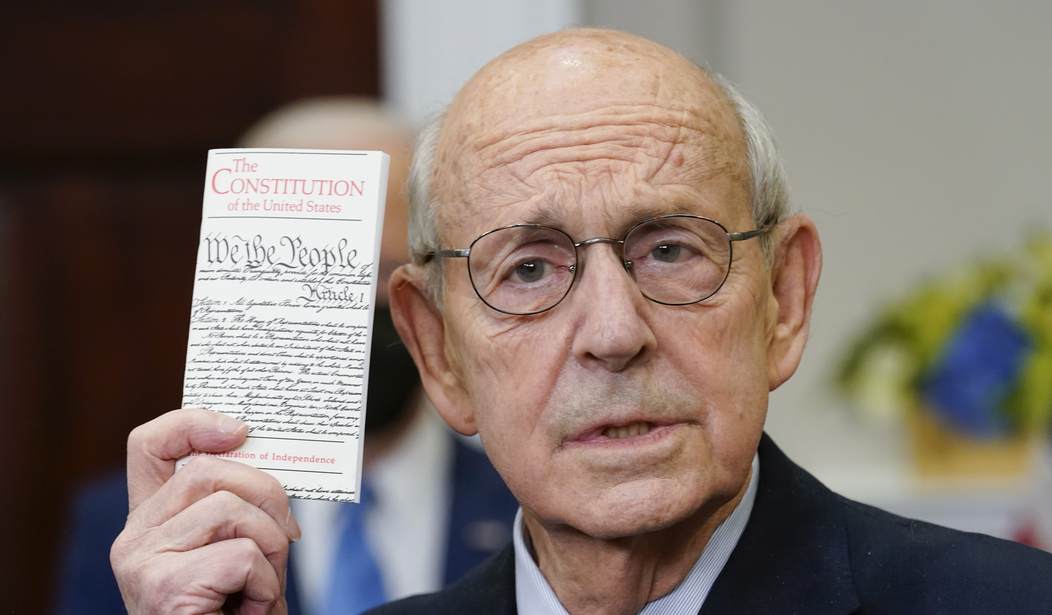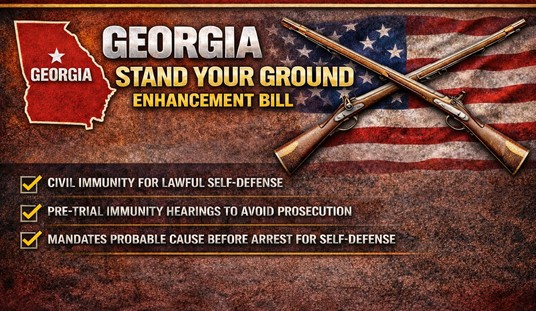Former Supreme Court Justice Stephen Breyer may no longer be in a position to decide cases that come before the Court, but he's still trying to shape the judiciary in a way that would allow for judges to uphold virtually every gun control law the anti's could dream up.
Breyer's new book Reading the Constitution; Why I Chose Pragmatism, Not Textualism outlines his approach to interpreting the Constitution. I'm actually surprised he managed to fill several hundred pages with material, given that his view is basically that judges should have the power to ignore what the text of the Constitution has to say if they don't like it.
Breyer highlights the need for considering the broader context in which laws are passed and the “practical consequences” of different interpretations. He refers to the majority judgment in New York State Rifle and Pistol Association v. Bruen (2022), in which he dissented. The Court held, 6–3, that New York’s law requiring a citizen to have a license to carry a gun outside his home violated the right to carry arms under the Second Amendment to the Constitution. Breyer expresses his disagreement with the ruling by emphasizing his preference to prioritize the practical implications. Considering the alarming patterns of gun violence in the US, Breyer believes the Court should have limited the access to firearms.
Does Breyer not know his history, or is he just choosing to ignore it? The Second Amendment was ratified shortly after a civil war that not only brought the United States its independence but led to small-scale reprisals between patriots and loyalists throughout the course of the war. As the Bill of Rights was being drafted and debated, the memory of Shay's Rebellion was fresh in the mind of the Framers, while the Whiskey Rebellion broke out along the western frontier the same year the Second Amendment was ratified. The Founders knew all about "gun violence". They just didn't believe that disarming the American people was the answer.
Breyer’s criticism of textualism is based on his adherence to pragmatism. He contends that judges should endeavour to interpret the Constitution in a manner that is pragmatic and adaptable to the requirements of modern society. According to him, this approach is better aligned with the intentions of the Constitution’s framers, who intended for the constitution to be “workable” and responsive to evolving circumstances.
The Constitution is responsive to "evolving circumstances", but the proper way to do that is through an amendment, not a panel of nine justices deciding that is language can be discarded because they think it's right thing to do in our modern age.
Breyer's not the first to adopt a "pragmatic" approach to the Constitution, of course. I'd argue that Roger Taney's decision in Dred Scott is actually a pretty good example of the pragmatic philosophy that Breyer espouses. Taney twisted the Constitution's text beyond recognition in order to reach his conclusion that black Americans could never be entitled to citizenship and that Congress had no power to regulate slavery in the territories. He did so in the belief that the practical implications of his ruling would make the country a more peaceful place by removing the issue of slavery and abolition (which Taney considered an act of "Northern aggression" from the national debate.
Pragmatism, like beauty, is in the eye of the beholder. In Bruen, Breyer (joined by Justices Sotomayor and Kagan) argued that the majority opinion "refuses to consider the government interests that justify a challenged gun regulation, regardless of how compelling those interests may be," adding "the Constitution contains no such limitation, and neither do our precedents."
The text of the Second Amendment doesn't include a clause after "shall not be infringed" that says "unless the government thinks there's a good reason to do so". The entire purpose of the Bill of Rights is to restrain the government from violating our individual rights, and the Fourteenth Amendment applies those protections to abuses from state and local governments as well. The only pragmatic way to change that while remaining faithful to the Constitution is to pass another amendment negating the right to keep and bear arms. That option has been available to the gun control lobby for decades, but as we've seen with Gavin Newsom's proposed constitutional amendment, it's not feasible because the support simply isn't there.
Since repealing the right to keep and bear arms is off the table, Breyer (and others) are left to insist that the Constitution is essentially whatever they want it to be. That judicial arrogance is at the heart of some of the worst legal decisions in this country, including Dred Scott, but thankfully was consigned to the minority in Bruen. If Democrats are able to reshape the court in their image after the November elections, however, that "pragmatic" approach could very well become the majority view on the Court. Our right to keep and bear arms could disappear as quickly as Dred Scott's right to live free did in 1857; not because the Constitution demands that result, but because the "pragmatic" enemies of individual liberty do.









Join the conversation as a VIP Member